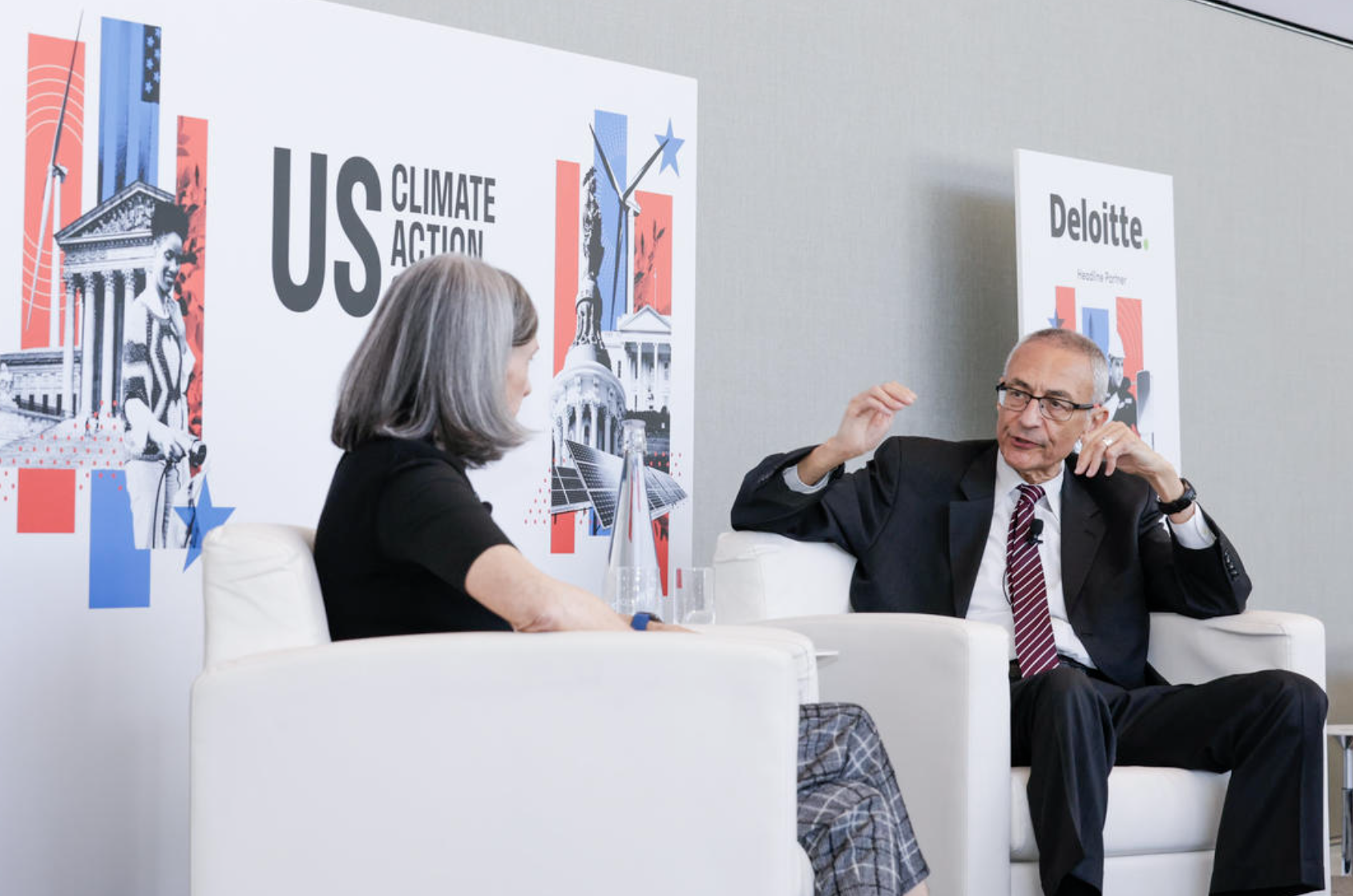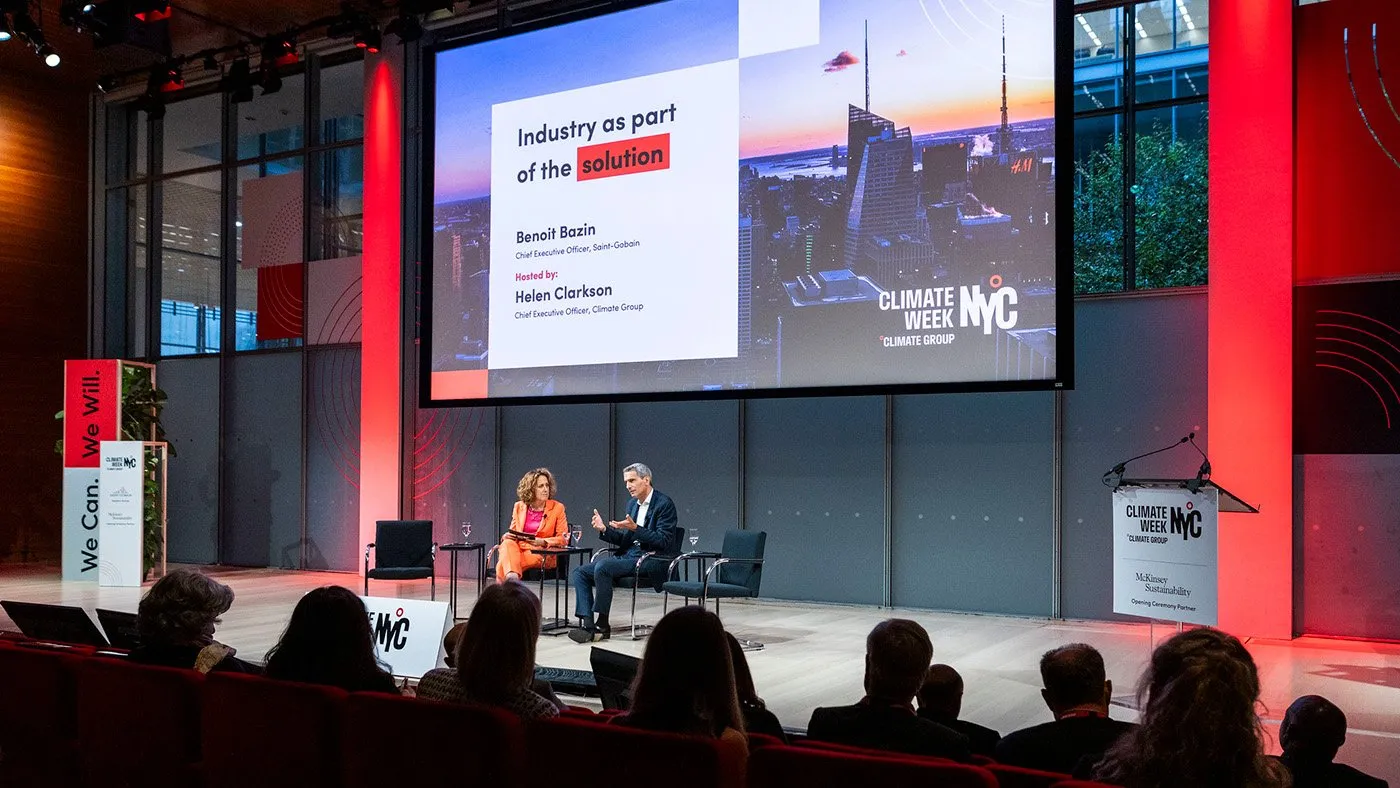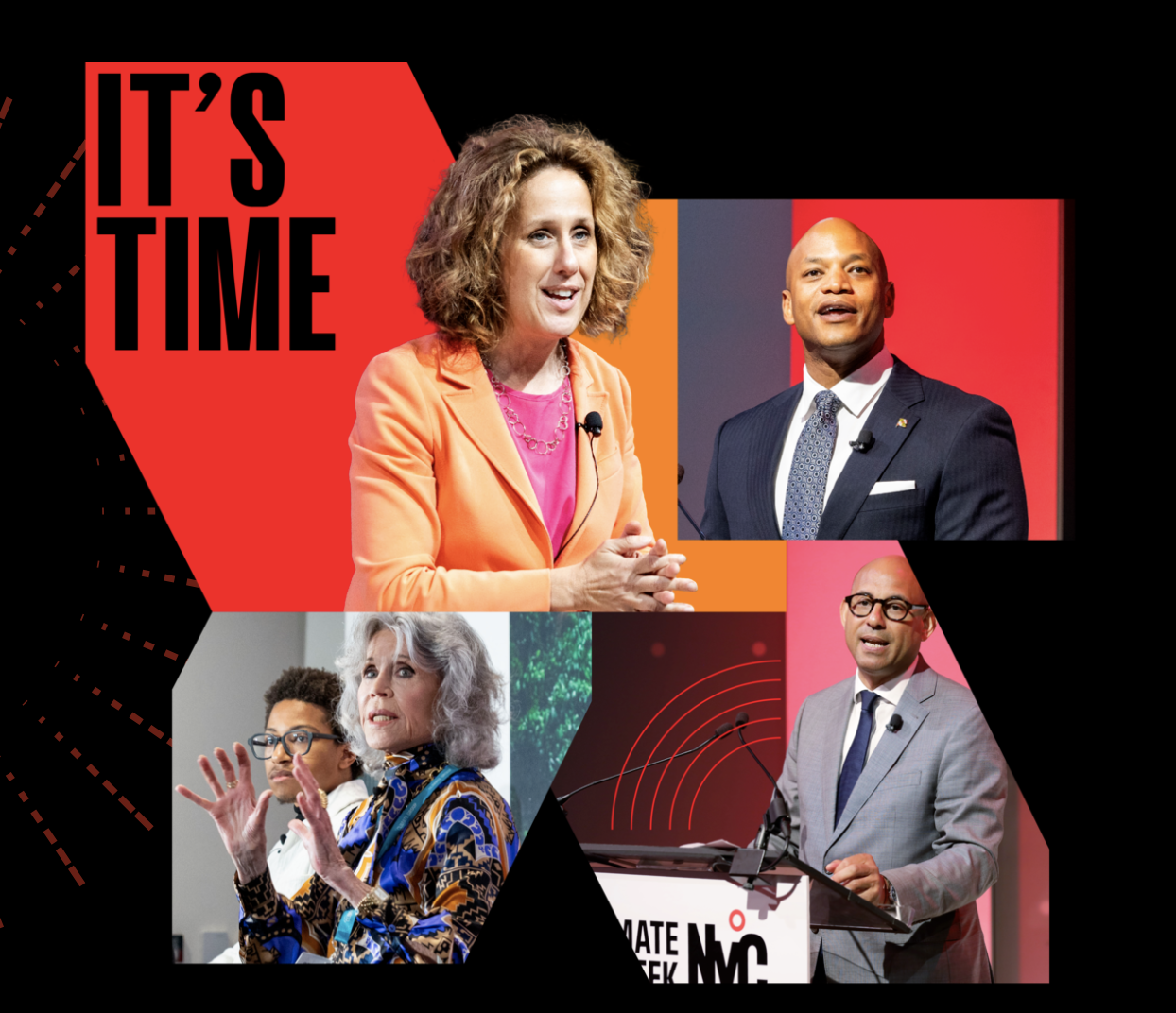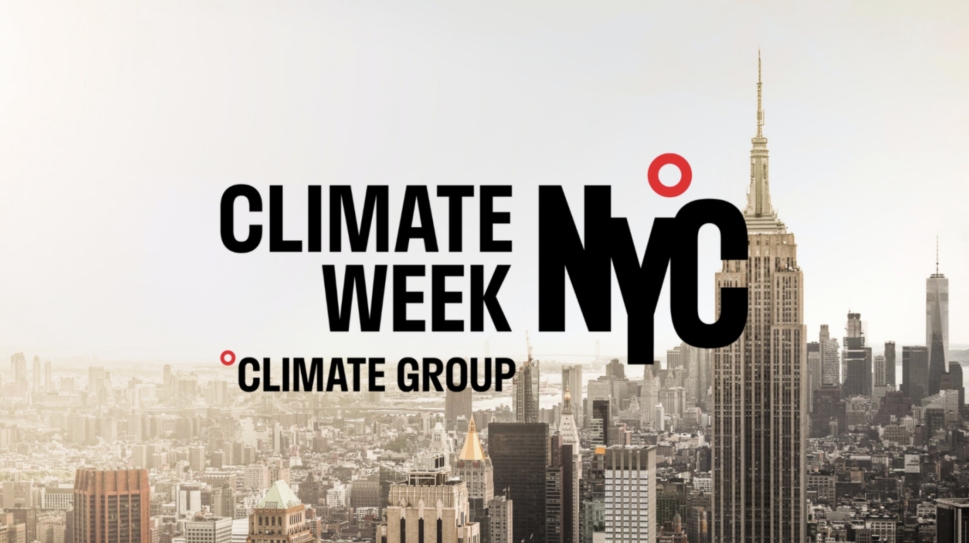NYC Climate Week 2024 brought together global leaders, activists, and experts for an urgent conversation about the future of our planet. With over 900 events, this year’s event was the largest yet, focusing on accelerating climate solutions to limit global warming to 1.5°C. The theme for this year, “It’s Time,” underscores the urgency of accelerating climate action and systemic change. Among the pressing issues were fossil fuel reduction, equitable climate finance, and industry transitions, but the conversation around plastics and pollution was also significant.
We’ll dive into the key takeaways from NYC Climate Week, highlighting discussions relevant to plastic pollution and sustainability, with a special focus on how businesses, governments, and communities are rethinking plastic’s role in the global climate crisis.
Key Event Speakers
NYC Climate Week 2024 attracted a wide range of influential leaders from governments, corporations, and environmental organisations, all focused on driving solutions for climate action. Here are some of the standout speakers who took the stage:
John Podesta – Senior Advisor for International Climate Policy to the U.S. President
John Podesta, one of the key figures in shaping U.S. climate policy, discussed the impact of the Inflation Reduction Act and the path towards a clean energy future. His session, “Building a Durable Clean Energy Future – Historic Action for a Historic Age,” emphasised the need for rapid and historic steps to secure a sustainable future.
Michael Regan – Administrator, U.S. Environmental Protection Agency
Michael Regan spoke on the importance of regulatory action to inspire bold climate solutions. His focus was on reducing emissions and tackling pollution, which is central to the Biden Administration’s climate agenda.
Ursula von der Leyen – President of the European Commission
Von der Leyen took part in discussions about climate financing for developing countries and emphasised Europe’s leadership in supporting the global green transition. Her speech at the Association of Small Island States highlighted the EU’s commitment to ensuring equitable access to climate finance and technologies.
Sonia Guajajara – Minister of Indigenous Peoples, Brazil
As a strong advocate for Indigenous rights and environmental protection, Sonia Guajajara brought attention to the importance of including Indigenous perspectives in climate policy. Her speeches were focused on protecting biodiversity and ensuring that Indigenous communities are recognized as vital stewards of ecosystems.
Helen Clarkson – CEO, Climate Group
Helen Clarkson was a pivotal voice at the event, advocating for ambitious global action on fossil fuel reduction. She highlighted how the world’s economies are in fierce competition to lead the green transition andstressed that policy-driven change is essential for achieving the 1.5°C target.

Plastic in the Spotlight
While plastic pollution was not the sole focus of NYC Climate Week, it was woven into broader discussions about the fossil fuel industry. Panels during the week stressed the need for legislative changes to address material consumption and support innovation in sustainable materials. The construction industry, for example, discussed the shift toward low-emission steel and concrete, which parallels the ongoing search for alternatives to traditional plastics in manufacturing.
Top Speakers on Climate and Fossil Fuels
Key figures who touched on plastic-related themes include:
John Podesta, Senior Advisor for International Climate Policy to the U.S. President discussed fossil fuel reduction and sustainability efforts that inevitably affect plastic production and consumption.
Michael Regan, Administrator of the U.S. Environmental Protection Agency, spoke about bold climate actions, hinting at the need for regulatory measures targeting pollution-heavy industries.
Helen Clarkson, in her opening address, underscored the need to phase out fossil fuels, a crucial component in the plastic industry.
Speakers emphasised that while technology and innovation are essential, regulatory action remains the most effective tool for addressing both climate change and pollution. This is especially true for plastic waste, where technological solutions alone cannot solve the problem without strong policy backing.
Plastic Collective in Attendance
Plastic Collective participated in Climate Week, with team members attending various events across two days. Chris and Sarah, two of our key team members, engaged in significant discussions and networking with thought leaders, corporations, and global policymakers, sharing insights into our work in plastic circular economy projects.
Both Chris and Sarah emphasised that while the event offered meaningful networking opportunities, more targeted sessions on plastics and the circular economy are needed in order to start addressing the climate implications of a rapidly expanding plastics industry (global plastic production is forecast to triple between now and 2060) which presently accounts for 3.4% percent of global emissions.
During her time at NYC Climate Week, Sarah attended a pivotal session by the World Business Council for Sustainable Development (WBCSD), where they discussed their forthcoming Global Circularity Protocol (GCP). This protocol, expected to be fully published in 12 months, aims to set a new benchmark for how brands can measure and make claims about their circularity practices and material consumption. The interim report released during the event projects that the GCP could reduce global material consumption by 4% to 5% between 2026 and 2050, signifying a substantial shift toward more sustainable business practices.
A key aspect of the protocol is its role in standardising corporate claims and accounting related to circularity, ensuring that brands are held accountable for their environmental impact. This will provide a consistent framework for companies to align with, similar to existing standards in climate reporting.

The Path Forward for Plastic
For organisations like Plastic Collective, the message from NYC Climate Week 2024 is clear: tackling plastic waste requires aligning efforts with broader climate initiatives, particularly in fossil fuel reduction. As governments and industries shift toward sustainable materials, there is a growing opportunity to advocate for plastic alternatives and responsible waste management. Collaborating with policymakers and innovators will be key to driving change.
One of the key takeaways from our participation in NYC Climate Week is the urgent need for more plastic-focused discussions within the broader climate conversation. While plastic pollution is part of the larger issue of fossil fuel dependency, it requires more direct attention and action. The Business Coalition for a Global Plastic Treaty represents a significant step forward, but we need more open forums to engage companies, policymakers, and activists on solutions like plastic credits, EPR mechanisms, and circular economy models.
For Plastic Collective, our mission to tackle plastic waste by providing scalable solutions that focus on plastic neutrality and community-driven recycling initiatives aligns with global efforts to shift towards sustainability. As more countries implement policies like mandatory recycling targets and circularity protocols, we believe our innovative approaches to plastic circular systems can play a crucial role in reducing plastic waste and supporting communities on the frontlines of environmental change.
As we look toward COP29 and beyond, the fight against plastic pollution must remain central to the conversation. It is not just about reducing waste but transforming our approach to production and consumption to create a circular economy that prioritises sustainability at every stage.
In conclusion, Climate Week NYC 2024 has reinforced that while we are making progress, we must maintain and even increase momentum. For those invested in solving the plastic crisis, now is the time to escalate our efforts and ensure that our materials, industries, and policies align with the urgent need to protect our planet from both global warming and plastic pollution.



